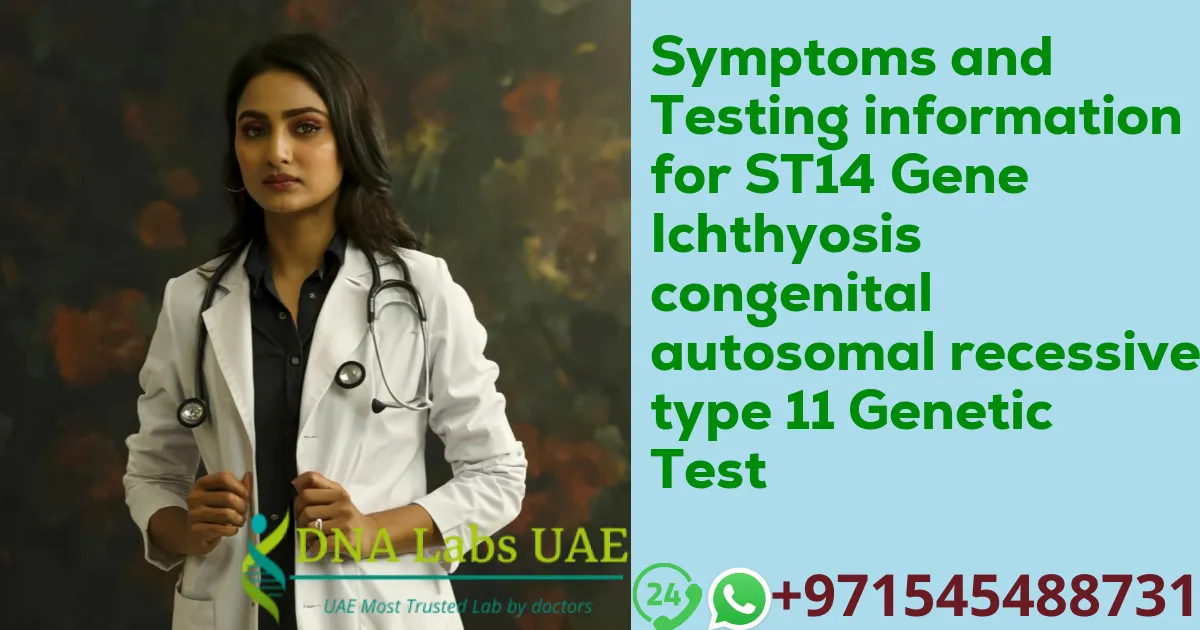Symptoms of ST14 Gene Ichthyosis Congenital Autosomal Recessive Type 11
Ichthyosis congenital autosomal recessive type 11, caused by mutations in the ST14 gene, is a rare genetic disorder. This condition is characterized by the presence of thick, scaly skin which is the hallmark symptom of ichthyosis. The scales are usually white, gray, or brown, and can cover the entire body or be localized to specific areas such as the limbs, trunk, or scalp. The severity of the scaling can vary significantly among affected individuals.
Beyond the skin manifestations, individuals with this condition may experience a range of symptoms including:
- Severe itching (pruritus), which can lead to discomfort and secondary skin infections due to scratching
- Overheating, as the scales can impair the skin’s ability to sweat normally
- Potential hearing loss, if the scales block the ear canals
- Respiratory issues in severe cases, where scales severely restrict chest expansion
- Joint mobility issues, due to tightness of the skin around joints
- Secondary skin infections, as cracks in the skin can become entry points for bacteria
It’s crucial for individuals displaying these symptoms to seek a genetic test for a definitive diagnosis. Early diagnosis can lead to better management of symptoms and overall quality of life.
ST14 Gene Ichthyosis Congenital Autosomal Recessive Type 11 Genetic Test
The genetic test for Ichthyosis congenital autosomal recessive type 11 involves analyzing the ST14 gene for specific mutations. This test is critical for confirming the diagnosis and can also provide valuable information for family planning. The process is straightforward, requiring only a sample of blood or saliva.
The cost of the ST14 Gene Ichthyosis Congenital Autosomal Recessive Type 11 Genetic Test is 4400 AED. While the price may seem high, it’s important to consider the long-term benefits of a precise diagnosis, which can significantly impact treatment strategies and quality of life.
For more information on the test and to schedule an appointment, please visit DNA Labs UAE.
Understanding the genetic basis of ichthyosis can empower affected individuals and their families to seek targeted therapies and support. Genetic counseling, as part of the diagnostic process, can also provide insights into the risk of passing the condition to future generations and discuss potential reproductive options.
“`



